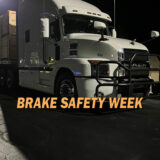Ticket camera rule changes approved, pursued in seven states
State legislatures around the country continue to discuss and take action on the use of automated cameras to ticket drivers.
More than 500 communities around the country employ the use of red-light or speed cameras to nab drivers disobeying traffic rules, the Insurance Institute of Highway Safety reports.
Supporters of the devices say they help make roadways and intersections safer by changing drivers’ behaviors. Opponents counter that ticket cameras are a money grab.
Iowa lawmakers are close to implementing a rule that would place regulations on the use of automatic traffic cameras.
The nonpartisan Legislative Services Agency reports that as of January eight cities around the state operate or have operated a total of 78 speed and red-light camera devices. It is estimated the cities collected $12 million in revenue via the devices during the past year.
The House and Senate have approved differing versions of a bill that would put in place rules on the use of the ticketing mechanism.
House lawmakers previously endorsed a plan to outright ban the use of cameras in school zones, road work zones and other high-risk areas. The Senate amended the bill to instead impose regulations on use of the cameras.
SF220 would allow cities and counties to use ticket cameras as long as any profits are directed for public safety and secondary roads. Voters also would get the opportunity to disband any camera program through a petition process. Police would also be required to sign off on each citation.
In addition, local authorities would be prohibited from imposing a civil penalty in excess of Iowa code for the same or similar violations.
In the meantime, the Iowa Department of Transportation has ordered the cameras turned off.
The cities of Des Moines, Cedar Rapids and Muscatine later challenged the decision in court. The Iowa Supreme Court agreed with the cities in late April in a ruling that the department does not have the authority to order cities to remove cameras from highways and interstates.
As a result, the final decision on traffic cameras must be made by the Legislature.
Arizona
A new law is intended to make sure law enforcement decides what is and what is not a speeding violation captured on camera.
Previously SB1110, the new rule requires police to examine a photo taken from a photo enforcement system to determine whether or not a violation has occurred. Companies that operate the cameras would not make the decision.
Redflex Traffic Systems Inc. and American Traffic Solutions backed the effort as it advanced through the statehouse. The Arizona-based companies own and maintain cameras in communities around the country.
Maryland
Two new rules could soon be in place in Maryland. Gov. Larry Hogan has already signed one bill into law to mandate that a ticket issued by a red-light camera could only be sent out if the yellow signal duration is in line with state and federal standards.
The IIHS reports there are six Maryland counties, the city of Baltimore, and 22 other jurisdictions using red-light cameras.
Previously HB204, the new law also allows drivers issued violations to challenge citations from locations with shorter yellow times.
Another bill on the governor’s desk would authorize the Fort Washington area to use one speed camera on state Route 210, or Indian Head Highway.
Maryland law now limits use of speed cameras along state highway work zones and in school zones. Montgomery County also is permitted to use the ticketing mechanism in residential areas.
Delegate Jay Walker, D-Prince George’s, said the exception is needed for state Route 210 because it is the “deadliest highway in the state of Maryland.”
HB175 would permit one speed camera at the intersection with Old Fort Road.
New Jersey
Assemblyman Nicholas Chiaravalloti, D-Bayonne, is behind a bill to permit the use of speed enforcement cameras in his state’s highway work zones.
Ticket cameras are not a new issue in the Garden State. About two dozen communities throughout New Jersey employed more than 70 red-light cameras through 2014. The controversial five-year program was sunset at that time.
Chiaravalloti’s bill would bring back automated ticketing. Specifically, the legislation would create a five-year pilot program to use traffic cameras in work zones.
Automated enforcement cameras would be used to detect drivers exceeding the posted speed limit by at least 11 mph when workers are present. Registered owners of vehicles found in violation would receive $100 fines in the mail. No points would be added to a driver’s record.
Three-quarters of the fine revenue would be allotted to the New Jersey State Police. About half of their allotment would be designated to pay for additional police presence in work zones.
The bill, A3082, is in the Assembly Transportation and Independent Authorities Committee.
New York
Two efforts underway at the New York statehouse cover use of ticket cameras. An Assembly bill would require signs alerting drivers of red-light and speed-monitoring systems at least 100 hundred feet from areas where the systems are in operation.
A8971 is in the Assembly Transportation Committee. The Senate version, S6719, is in the Senate Transportation Committee.
The second bill would permit the use of speed cameras on the Long Island Expressway in Suffolk and Nassau counties.
Camera enforcement is already allowed in the counties near schools.
S8263 would dole out tickets for drivers exceeding the posted speed by at least 15 mph.
The bill is in the Senate Cities Committee.
Ohio
House lawmakers voted to advance a bill intended to make automated ticketing operations too expensive for local law enforcement throughout the state. Specifically, HB410 would require all revenue from red-light and speed cameras to be deducted from municipalities’ state aid payments.
All civil traffic violations, such as ticket camera offenses, also would be required to be filed in municipal courts instead of mayor’s courts or an administrative hearing officer. Municipalities would be responsible for paying the court costs.
“If a camera records a driving infraction, the driver deserves to be treated the same as if they had received any other traffic ticket,” Rep. Bill Seitz, R-Cincinnati, said in prepared remarks.
Seitz was also the sponsor of a 2014 bill signed into law to severely limit the ability of police to issue automated tickets. Among the provisions in the law was a requirement for police officers to be present at red-light and speed camera sites to witness violations.
The city of Dayton later challenged the law in court. In July 2017 the Ohio Supreme Court ruled the state-imposed restrictions interfere with local authority.
According to the Ohio Legislative Service Commission, at the time the law took effect in 2015 there were about 250 ticket cameras in use by at least 14 municipalities throughout the state. As required by the 2-year-old law, the annual expense to station officers at each location was estimated to be $73 million.
In the past two years, multiple communities opted to shut down their ticket programs. Since the court decision this summer the city of Dayton has reinstalled ticket cameras. The city began sending out $85 tickets for violations on Nov. 1.
Automated ticketing has faced a lot of pushback in Ohio in recent years. In November 2014, voters in the city of Cleveland and its suburb of Maple Heights approved ballot questions that mirror the bill’s requirement for police officers to be on the scene to hand out citations.
Nine Ohio locales have acted in the past 12 years to outlaw use of the enforcement tool. Cities that have taken action are Steubenville, Cincinnati, Heath, Chillicothe, Garfield Heights, Ashtabula, South Euclid, Maple Heights and Cleveland.
The bill awaits further consideration in the Senate Judiciary Committee.
Pennsylvania
A Senate-approved bill would authorize speed cameras in active work zones on interstates and the Pennsylvania Turnpike.
SB172 would authorize a three-year pilot program for the Pennsylvania Department of Transportation and the Turnpike Commission to post speed cameras. As introduced, the bill called for setting up a five-year pilot program.
The same speed limit threshold and fine amounts included in the New Jersey legislation apply to the Pennsylvania bill.
Sen. David Argall, R-Schuylkill, says changes are needed to driver behavior in work zones and he hoped the legislation will remind motorists to slow down in affected areas. He highlights figures from 2016 that show there were 2,075 crashes in Pennsylvania work zones, including 16 deaths.
“The goal of this legislation is to safeguard the men and women who work on repairing our roads and infrastructure in order to make them safer and more efficient for motorists,” Argall said in previous remarks.
Argall’s bill is in the House Transportation Committee.









